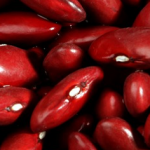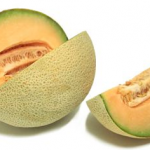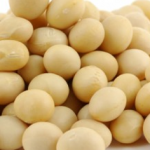Spinach
Vitamins
Vitamin A contains retinoic acid, which can help to treat many common symptoms of diabetes. This vitamin can help to promote weight loss through an increase of metabolic rates. It also increases the body’s sensitivity to insulin and helps to stabilize sugar levels in the blood. These are all some of the most important issues affecting those who suffer from diabetes.
Vitamin C is known for its protection against cell damage. As an antioxidant, it can help to cleanse the body against free radicals within the bloodstream. This can help both to lower blood pressure and to increase the effectiveness of the immune system. Furthermore, it can assist in the maintenance of healthy vision, which is important since blurred vision is one of the earliest diabetes symptoms.
One of the primary causes of death for diabetics is heart disease. Vitamin E can help to prevent deadly heart conditions, as well as liver damage due to oxidative stress. This stress is relieved by vitamin E due to its potency as an antioxidant. It also helps to cleanse the bloodstream of free radicals, and can regulate blood sugar levels through its ability to help dissolve fat molecules.
Vitamin K helps in both prevention and management of diabetes. Its anti-inflammatory properties have been known to help improve insulin production and effectiveness, stabilize blood glucose levels, promote cardiovascular health, and even help fight cancers that sometimes affect diabetics.
Potassium, Selenium and Magnesium
Potassium assists cardiovascular health, though it serves other purposes as well. Potassium deficiency can be a major problem for diabetics, especially those who experience symptoms of excess urination. Decreases in potassium can lead to poor kidney function and improper balances of bodily fluids.Selenium is a source of antioxidants which can help protect diabetics from further complications. Not only can it help to lower the risk of heart conditions and other complications, but it can also help in the metabolism of blood sugar and the production of insulin. In some cases, selenium has even been known to aid in the destruction of cancer cells.
Magnesium, like potassium, can be lost through excess urination. It is important to keep a decent amount of magnesium in the body, as it is one of the top promoters of circulatory and cardiovascular health. Not only can magnesium help to prevent heart disease, it can also lower the blood pressure and assist the body’s proper functions.
Cautions
Spinach can be a prime example of “too much of a good thing” if consumed in vast quantities. First, it can affect the health of the kidneys and gallbladder due to its high content of oxalates. Diabetes patients who suffer from problems affecting these organs are advised not to eat too much spinach at one time for this very reason. Second, overconsumption of spinach can lead to a buildup of uric acid. This can cause a form of arthritis known as gout, especially in men. This is an incredibly painful condition that is more likely to affect diabetics than most other people, so it is important to avoid at all costs.
Also, it is important to keep in mind that, while potassium and selenium are vital components of spinach, neither one should be consumed too much. High potassium intake can lead to kidney damage, while high selenium intake can lead to nerve damage. Therefore, while spinach is a generally healthy food source, it should be consumed by diabetics in moderation.

























